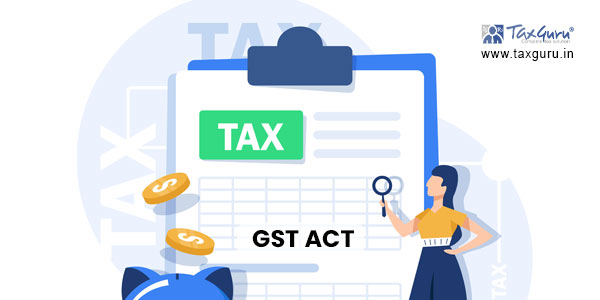From the inception of the Goods & Services Tax Act, 2017, the authorities are unwilling to give up the tax evaders. The authorities, as a result, are working diligently to identify the tax evaders. Section 67 of the Goods & Services Tax Act, 2017 (in short ‘GST Act’) provides a runway to the authorities to give color to their intent. Section 67 (1) GST Act empowers the proper officer to inspect the place of business and section 67(2) empowers the proper officer to search any place. The power granted under section 67(1) GST Act is restricted only to the place of business whereas the power under section 67(2) GST Act is applicable to any place. Power under section 67(2) GST Act, thus, is wider in scope.
Power of inspection & search under sub-sections (1) & (2) of section 67 GST Act is to be exercised only if the proper officer, not below the rank of joint commissioner, has reasons to believe bearing a proximate and live nexus to the purpose.

The power of search & seizure is draconian in nature. The Legislature, therefore, to prevent mis-use of power and to provide safeguard to owner or occupier of the place searched, intentionally did not provide unfettered power. Section 67(10) GST Act paves path to the application of provisions of the Code of Criminal Procedure, 1973 relating to search and seizure. It is appropriate to state that section 67(10) GST is mandatory in nature as the provision provides safeguard to the owner or occupier of the place searched.
Section 67(10) GST Act uses the expression ‘so far as may be’. The burning question is whether the provisions of Code of Criminal Procedure, 1973 (in short ‘Code’) relating to search and seizure would be applied mandatory or directory because of use of expression ‘so far as may be’.
Section 67(10) GST Act, as stated above, is mandatory in nature because same provides the safeguard. The expression ‘so far as may be’ conveys the intention of the legislature to incorporate the provisions of one Act in another enactment. Expression ‘so far as may be’ lays down the principle that what is not either expressly, or, by necessary implication, excluded must be applied. The intention, thus, behind using the expression ‘so far as may be’ in section 67(10) GST Act is to exclude only such provision of the Code which become inapplicable because of any special procedure prescribed under the GST Act. The expression ‘so far as may be’ used in section 67(10) GST Act does not provide discretion to the Commissioner to apply provisions of the Code where it likes.
The expression ‘so far as may be’ is equivalent to the Latin expression ‘mutatis mutandis and it means ‘so far as may be applicable. Any construction to expression ‘so far as may be’ which confers discretion upon the Commissioner to apply provisions of the Code where it likes makes safeguard, provided by the Legislature, otiose.
Conclusion
The author, thus, is of the view that section 67 GST Act paves path to the mandatory application of provisions of the Code relating to search and seizure. The expression ‘so far as may be’ does not make the provision discretionary in nature especially when the same provides safeguard to the owner or occupier of the place searched. The owner or occupier of place searched, therefore, is entitled to get copy of reasons to believe recorded by the proper officer before search under section 67 GST Act. Any construction to expression ‘so far as may be’ to deny copy of reasons to believe recorded prior to search provides unfettered draconian power to the proper officer. Any such construction also debars the owner or occupier of the place searched to know the reason to search which infringes his right. The owner or occupier of place searched, therefore, is entitled to get copy of reasons to believe recorded prior to search under section 67 GST Act.





yes view is taken by SC in Partap Singh versus ED. Issue is also pending for consideration before the Hon’ble Punbjab and Haryana High Court and Delhi high Court.
Does this view considered in any judgement? Or relied by any Hon’ble court?